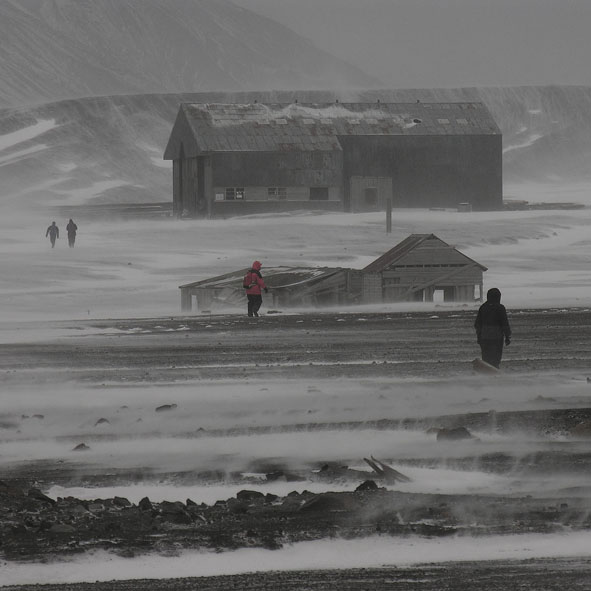Ernest Shackleton The Quest (1920-1922)
By 1920 Ernest Shackleton was turning his attention to the Antarctic again. A friend, John Rowett, put up the money, and a dilapidated Norwegian sealer was renamed Quest, at Emily Shackleton’s suggestion. Frank Worsley was captain again, Frank Wild was Shackleton’s deputy, and Alexander Macklin was one of three doctors. The aims of the expedition were vague—oceanography; searching for sub-Antarctic islands; mapping uncharted coast; looking for Captain Kidd’s treasure in Trinidad, and for pearls in the Pacific.
Quest sailed from London on 17 September 1921 and left Rio de Janeiro on 17 December. Shackleton was obviously not well, but on 2 January 1922 he wrote: “At 1 pm we passed our first berg. The old familiar sight aroused in me memories … Ah me! the years that have gone since in the pride of young manhood I first went forth to the fight. I grow old and tired but must always lead on.” On 4 January they sighted South Georgia, and Frank Wild recalled: “I recognized once more the old buoyant, optimistic Boss.” After a cheerful evening in Grytviken they returned to the ship, where Macklin told Shackleton to take it easy. “You are always wanting me to give up something,” replied Shackleton. “What do you want me to give up now?” Then he suffered a massive heart attack, and died at 2.50 am on 5 January. He was 47 years old.
After holding a memorial service and erecting a cairn to his memory, Quest continued, but achieved little. Shackleton’s body was taken to Montevideo, but Lady Emily requested that he be buried at South Georgia, and there he was interred on 5 March. Symbolically, his was the only grave with its head to the south, rather than the east. Quest returned to England on 16 September 1922.
Worsley wrote: I knew that I should never look upon his like again. He was not only a great explorer: he was a great man … by his genius for leadership he had kept us all in good health… by sheer force of his personality he had kept our spirits up… by his magnificent example, he had enabled us to win through …
“His was a proud and dauntless spirit … We would have gone anywhere without question just on his order. What more glowing tribute could any man wish for?”
author: David McGonigal
Thinking of travelling to Antarctica?
Visit our Antarctic travel guide.
Heroic Age
- Douglas Mawson Australasian Antarctic Expedition (1911-14)
- Ernest Henry Shackleton British Antarctic Expedition (1907-09)
- Ernest Shackleton Imperial Transantarctic Expedition: 1914-17
- Ernest Shackleton The Quest (1920-1922)
- Ernest Shackleton The Ross Sea Party (1915-17)
- Jean-Baptiste-Etienne-Auguste Charcot French Antarctic Expeditions (1903-05)
- Jean-Baptiste-Etienne-Auguste Charcot French Antarctic Expeditions (1908-10)
- Nils Otto Gustaf Nordenskjöld Swedish South Polar Expedition: (1901-04)
- Roald Engelbreth Gravning Amundsen The Norwegian bid for the South Pole (1909-11)
- Robert Falcon Scott The last voyage (1910-12)
- Robert Falcon Scott – British National Antarctic Expedition (1901-04)
- Scott – The Other Expeditioners




 Email Newsletter
Email Newsletter